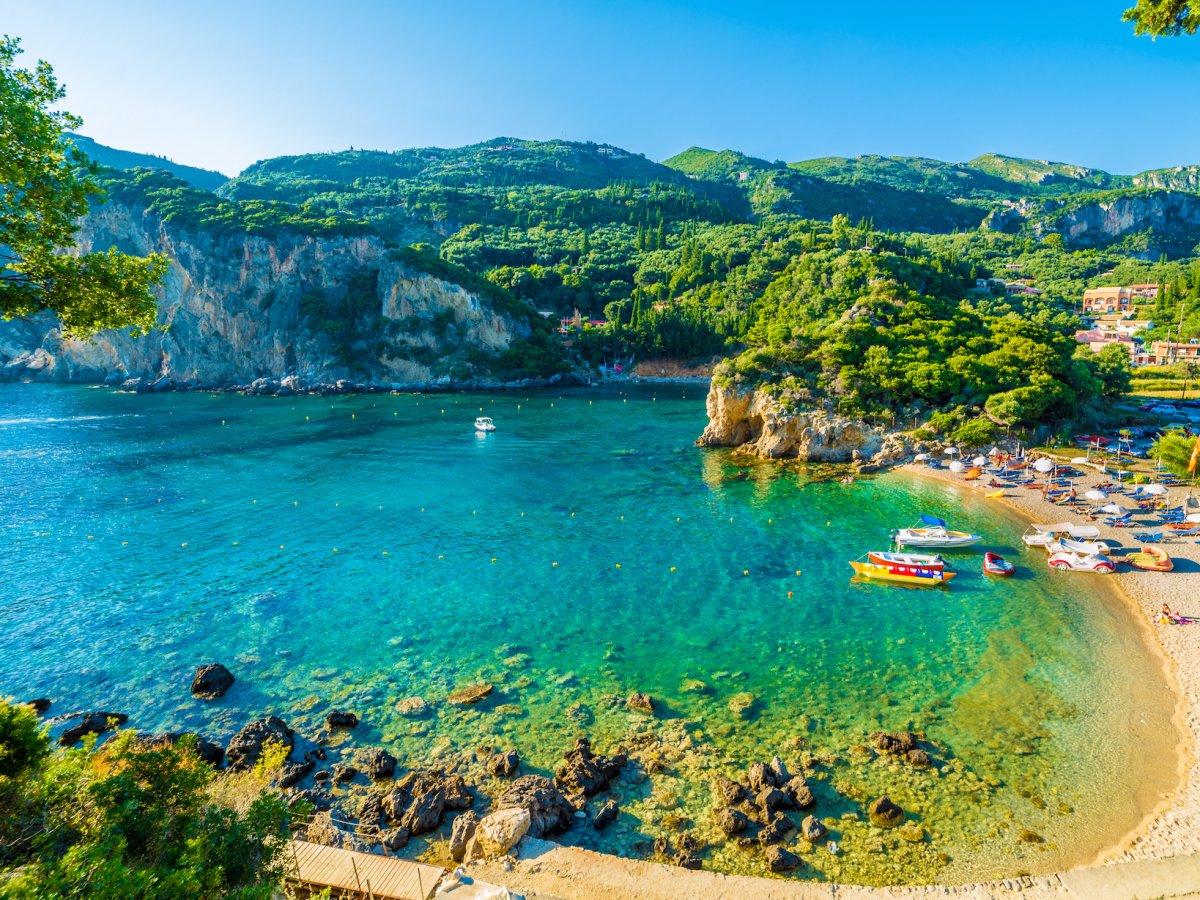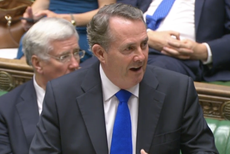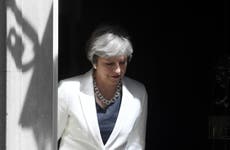Why we need to stop romanticising the idea of Europe
Our emotional attachment to the EU allows memories of backpacking holidays and friendships and new family links to obscure a cold analysis of the broader national interest


Leaving aside the whole economic argument, where I remain sceptical by instinct, the greatest tragedy about the about European project – the full-on superstate version, that is – is that it never came to pass and was never going to come to pass. Because actually no one told us it was a possibility and it might even work. For some of us such honesty would have been refreshing. It rarely surfaced.
In other words I can see the emotive power of the nation state – a concept that remains stubbornly attractive from Quebec to Catalonia to Scotland – and I can also recognise the dreamy attractions of a European superstate as rich and powerful as the US, with nuclear weapons too. But a stumbling, flawed, dysfunctional, disputatious, multi-speed, crisis-ridden European Union? It is the worst of all worlds, and has set the European cause backwards.
I don’t think many even in “core” Europe are really convinced by the ramshackle outfit we’ve got now, and really believe it will be around in another 60 years. It is often remarked that the EU is a “unique experiment” in international integration, which it certainly is. Trouble is, for all its economic achievements, and some flops, it has failed to earn much widespread loyalty or affection. Ask a Greek.
That said, almost half a century of Britain in “Europe” has turned Europe as a vaguer concept into an establishment norm, the familiar warm idea many have literally grown up with – just as for previous generations, it was the British Empire or Commonwealth.
It is difficult now to recall that it was considerations of the Commonwealth’s potential as a third force in the world – aside from Russia and America – that led so many on the left to be suspicious of sacrificing Britain’s duties and obligations to it in favour of this alien Europe thingy. Labour leaders such as Hugh Gaitskell and Harold Wilson were impeccable anti-racist campaigners and internationalists, and were at times fiercely opposed to a British betrayal of kith and kin and ex-colonial obligations which entering Europe would mean. Tories too had their sentimental attachments.
When the great European project was getting under way in the 1950s the then-Prime Minister Anthony Eden is said to have remarked to his private secretary: “What you’ve got to remember is that if you looked at the post-bag of any English village and examined the letters coming in from abroad, 90 per cent would come from way beyond Europe.” Indeed many of the postage stamps on the letters would bear a portrait of the young Queen Elizabeth, just like “home”.
Family and business links to America, Canada, South Africa, New Zealand, Australia, India, Pakistan, Nigeria, Ghana, the “British” West Indies and Rhodesia dwarfed those with the original European partners – France, Germany, Italy, Belgium, the Netherlands and Luxembourg. In those days only 20 per cent of UK trade was with the then-smaller European Economic Community.
Now, after so much has changed in trade and travel, perhaps some us have become used to and attached to Europe in a similar fashion, allowing memories of backpacking holidays and friendships and new family links to obscure a cold analysis of the broader national interest. Now the feeling among some Remainers seems to be that we are turning our back on and betraying our European friends, neighbours and relatives.
Yet just as Britain had to examine its national interests in the 1950s and 1960s and decide if it was to remain linked to a relatively slow growing Commonwealth or dynamic European common market, so now should we also look soberly at the options that are open to the UK today. We don’t help anyone else by betraying the British interest. On the other hand, does Europe have such a sustainable future anyway?
By the way, even Jean-Claude Juncker thinks it may not on the current arrangements. The President of the Commission produced his own “white paper” in March, to mark the half-century since the Treaty of Rome. The document, which I commend to you, frankly owns up to the EU’s structural weaknesses such as its ageing population, and puts forward five scenarios, including having the EU do less but do it better.
The United States of Europe doesn’t even rank as an option these days, and it means that even the driving force of European unity, the commission, is losing faith in it.
In a way, that’s a shame. If all the peoples of Europe could have one government with one parliament taking the major decisions on everything, and a genuinely European-wide party system, that might be a fine thing. A German Conservative/Christian Democrat premier could answer questions every week from a British Labour/Social Democrat leader of the opposition. On Euro-Newsnight, a Euro-minister from Sweden would be challenged by backbench critics from Ireland and Bulgaria. Party conferences would be held in Bratislava or Madrid or Talinn. We’d have one currency, one army, and one de facto language that everyone can speak – English.
We would be a new nation state with the second largest economy on earth. Maybe we’d even agree to a fiscal union, so the British would no more mind sending a flow of taxpayers’ money south to Greece any more than they resent it going north to Gateshead.
Had anyone ever honestly put that to the British and other peoples, they’d at least have been able to consider it. But no one ever did. Instead, we seemed to be assailed by crude attempts to create such a thing but in bureaucratic and undemocratic form via stealth and dishonesty. Selling cars and food to each other and enjoying city breaks in lovely cities did not build a political entity.
The British like their European neighbours – and vice versa. It’s where we like to holiday, and we’re used to European colleagues and neighbours. To use Eden’s test, many emails in our inboxes come from Europe and Europeans here. Yet the British, in fact like Danes or Czechs or Germans, do not look to Brussels for political decisions. The nation state is a stubborn thing, and it is more than a shame that the alternative wasn’t ever made clear. In that circumstance Britain has to put the British interest first, unsentimentally.



Join our commenting forum
Join thought-provoking conversations, follow other Independent readers and see their replies